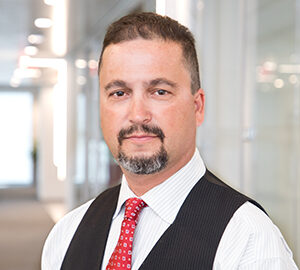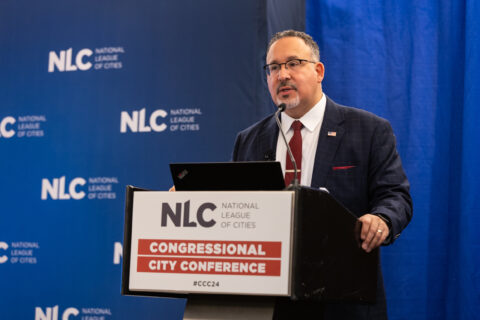We’ve heard countless stories about today’s staffing shortages and how hard it is for businesses to find talent. Unfortunately, this painful post-pandemic workforce crisis has hit the youth-serving workforce especially hard.
While schools suffer from teacher vacancies, municipal and community programs serving youth are also affected. This translates to afterschool and summer programs without enough staff to serve more young people. Pools can’t open without youth lifeguards, some community programs have been unable to expand, even with potential investment from the city’s State and Fiscal Recovery dollars from the American Rescue Plan because of the challenge of finding additional workers. Libraries are operating with limited hours, and recreation centers are challenged to meet families’ demands for affordable programs. Given the trauma and limited opportunity youth faced during the pandemic, afterschool and summer programs have become even more vital for young people, however the workers are burned out.
NLC is working with the American Institutes for Research’s (AIR) to disseminate its Power of Us Workforce Survey, the first nationwide attempt to understand what keeps workers committed to the youth field or what is making them leave. Since the onset of the pandemic, cities have been struggling to fill staff positions in their youth programs although these programs often serve as a lifeline for families for food, homework help, and more.
Data from the Power of Us Workforce Survey will offer answers as to why these challenges are occurring. The survey includes questions about the experiences of those currently working with youth, including their perception of their job, their current salary or professional development needs, and their projected career trajectory. For people who have recently left the youth-serving workforce, the survey asks why they chose to leave, what sector they moved into, and whether they plan to return to the field.
Please share the survey with city department/agency directors who can in turn share it with their site directors and ask them to give front line staff and volunteers paid time to take it as well. The survey is for anyone who has worked directly with young people as a volunteer or staff member within the last 5 years. It only takes 10-15 minutes to complete. Survey respondents can remain anonymous, and one respondent is chosen monthly to receive a $100 gift card. The Power of Us Workforce Survey closes on March 31st, 2023.
Cities can use survey findings to better understand the needs and challenges of the youth-serving workforce in their community, and the factors that make going into a youth-serving profession appealing. With the historic federal investment made through the American Rescue Plan Act, cities have an opportunity to support the youth-serving workforce and expand the programs they offer to young people. Cities can also utilize the data from the Power of Us Workforce Survey to inform their investment decisions and ensure that new programs and policies align with the needs of those working on the front lines and address the underlying causes of the youth-serving workforce shortage.
However, all of this is only possible if enough municipal or community program staff complete the survey. We’re aiming for 10,000 national responses to ensure the survey results are meaningful. Become a Survey Champion and commit to sharing the Power of Us Workforce Survey widely within your community. If you are connected to a wide circle of people working in the youth fields, take the Power Pledge and commit to securing a specific number of respondents to potentially receive a small honorarium. If there are enough respondents from a municipality, NLC and AIR may be able to provide you with community-level data on their youth-serving workforce to help inform future policies, programs and investments.
The city staff and volunteers who work with youth play an undeniable role in shaping the lives of the city’s future generation of leaders, workers, and voters. The programs they oversee provide these youth with safe spaces and engaging activities to learn, grow, and play. The staff themselves often serve as mentors, tutors, unofficial guidance counselors, mental health workers, and so much more as they help young people navigate the challenges of growing up in today’s world. Municipal officials know the impact on public safety, academic achievement and workforce readiness when young people don’t have caring adults and productive activities in their lives. The youth-serving workforce sector is fundamental to not only the well-being of a community’s youth, but the city overall. NLC is dedicated to ensuring that their experiences are represented in the Power of Us Workforce Survey results.
We encourage cities to share the Power of Us Workforce Survey widely with city programs and community-based program leaders and ask their staff and volunteers who work with youth to complete it before March 31st, 2023. Together, we can understand and support these invaluable adults who help our young people thrive.
Share the Power of Us Survey
Help us distribute the Power of Us Workforce Survey by sharing with your Youth-focused Workers in city programs and community-based programs.
Become a Survey Champion











